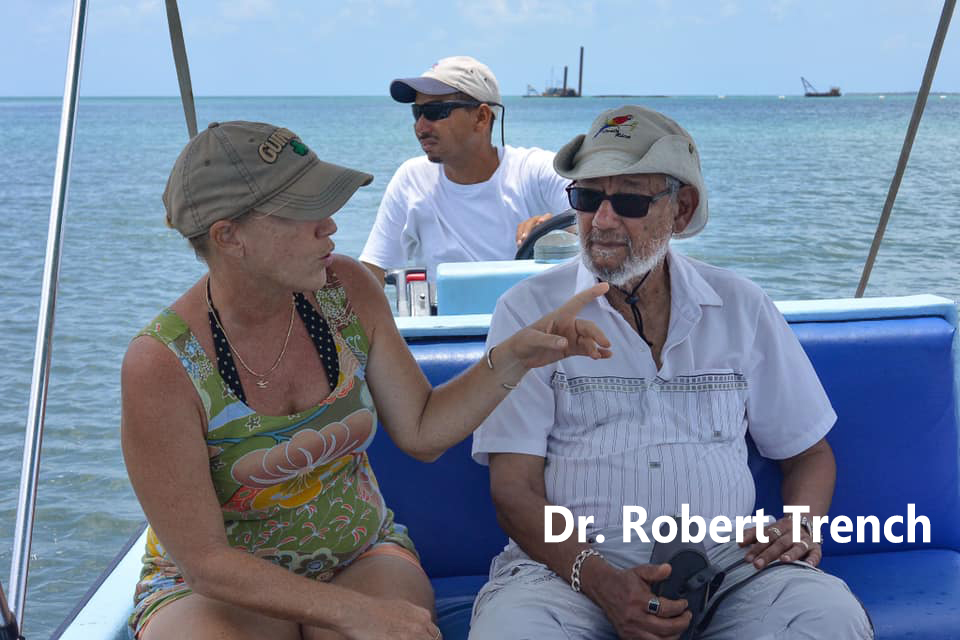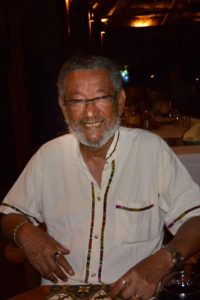 Highly respected scientist Dr. Robert K. Trench passed away on April 27th. To many Belizeans, his name might be unknown. Still, to those involved in marine science, he was not just a commendable scholar, mentor, father-figure, confidant, and colleague everyone knew, but a proud symbol of Belizean talent. Dr. Trench, a born Belizean, was recognized as the leading expert in identifying the symbiotic relationship between corals and algae.
Highly respected scientist Dr. Robert K. Trench passed away on April 27th. To many Belizeans, his name might be unknown. Still, to those involved in marine science, he was not just a commendable scholar, mentor, father-figure, confidant, and colleague everyone knew, but a proud symbol of Belizean talent. Dr. Trench, a born Belizean, was recognized as the leading expert in identifying the symbiotic relationship between corals and algae.
Trench was born in 1940 when Belize was known as British Honduras. He was educated at the University of the West Indies, Oxford University, and the University of California in Los Angeles, USA, where he earned his doctorate thesis on invertebrate zoology in 1969. Hailing from the home of the second largest barrier reef in the world, his expertise focused on coral reef ecology, physiology, biochemistry, phylogenetics of symbiosis, and intercellular recognition phenomena. The Belizean scientist published dozens of scientific papers throughout his lifetime and contributed significantly to the understanding of coral reef symbiosis and diversity. Due to this, he was recognized as a leading expert in the subject of symbiosis.
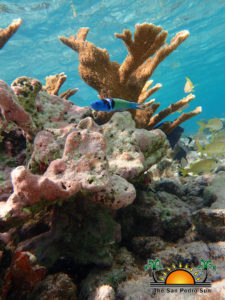 According to Dr. Trench, during his student research, he kept finding chloroplasts in his animal samples. “I told my advisor these shells have chloroplasts!” Trench told people. He shared that his advisor and other scientists thought he was mad crazy. “I was advised to stick to my thesis and quit about invertebrates having chloroplasts,” he shared. He was even told that his degree could be at stake if he insisted on the topic. Dr. Trench kept it in the back of his mind to investigate it. Eventually, he published his findings and went back to his advisor and the scientists and dropped in their hands the printed award-winning scientific paper-and said. “Here, invertebrates have chloroplasts!”
According to Dr. Trench, during his student research, he kept finding chloroplasts in his animal samples. “I told my advisor these shells have chloroplasts!” Trench told people. He shared that his advisor and other scientists thought he was mad crazy. “I was advised to stick to my thesis and quit about invertebrates having chloroplasts,” he shared. He was even told that his degree could be at stake if he insisted on the topic. Dr. Trench kept it in the back of his mind to investigate it. Eventually, he published his findings and went back to his advisor and the scientists and dropped in their hands the printed award-winning scientific paper-and said. “Here, invertebrates have chloroplasts!”
His discovery brought to light what was happening between corals and certain algae. The symbiosis occurs with tiny photosynthetic plankton called zooxanthellae. According to studies, the corals provide the small living organism with shelter and carbon dioxide needed for photosynthesis. The coral reef receives food and oxygen created during photosynthesis. The different colors in corals are due to the variety of zooxanthellae and coral relationships. The unique nature of this relationship also contributes to the overall health of coral reefs.
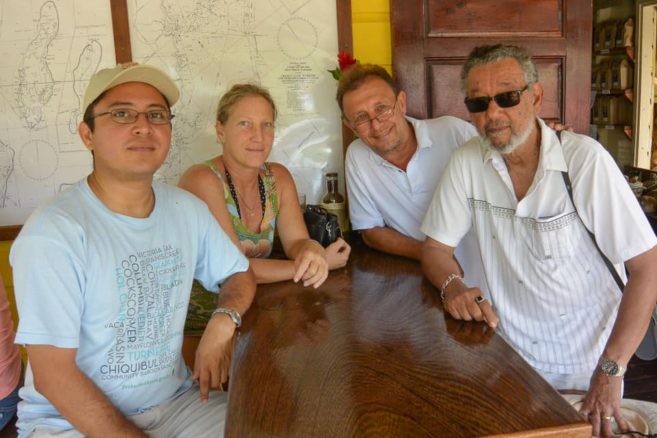
Island-based scientist Valentine Rosado said that it was an honor meeting Dr. Trench from whom he learned a lot regarding marine science. Rosado first heard about Bob in a 2008 workshop about coral bleaching. Sometime after, Rosado had the opportunity to meet him in person. “I only spent a few hours with this man, and he influenced me so much,” says Rosado.
Awards and Recognitions
In 1994 Dr. Trench was awarded the coveted Miescher-Ishida prize for outstanding contribution to the field of endocytobiology. This is the 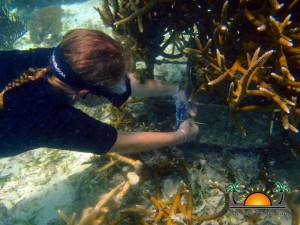 study of symbiosis within cells and their interactions and processes. Dr. Trench was awarded in 2010 the Healthy Reefs Lifetime Achievement award during the Belize Reef Summit ‘Someday is NOW.’
study of symbiosis within cells and their interactions and processes. Dr. Trench was awarded in 2010 the Healthy Reefs Lifetime Achievement award during the Belize Reef Summit ‘Someday is NOW.’
Dr. Trench retired from teaching at the University of California in 2000. The Belizean scientist visited his home country on several occasions and met with Belizean environmentalists. He is remembered as a very kind person, very approachable, and willing to share his knowledge with everyone. One of his last visits including attending a Fragments of Hope event in 2015 in Placencia in southern Belize. He was a great friend and mentored them for many years. He strongly supported Fragments of Hope coral restoration efforts, which up to date, continues to thrive.

